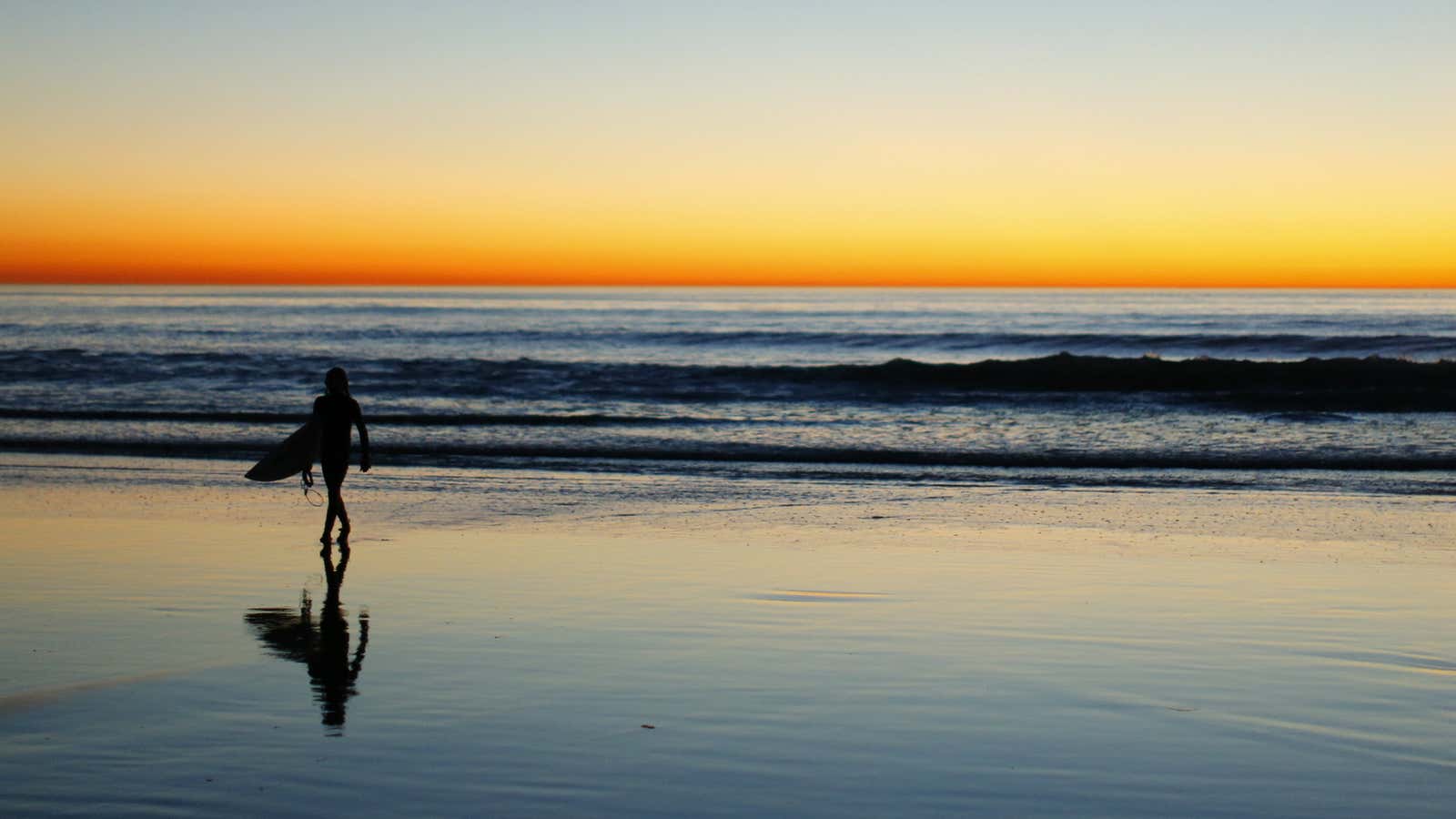Summer trapped in a hot, sticky city might be a miserable season, but it’s the anticipation of a two-week break from reality that helps make the summer months some of the most enjoyable of the year.
While taking a vacation has strong psychological benefits, there’s no one-size-fits-all dream holiday. The type of break you should take varies greatly according to your mindset; after all, time alone on a remote island will impact someone who’s recently suffered a loss very differently from a teenager heading out on their gap year.
The writer Alain de Botton takes this idea to the extreme in his book The Art of Travel, which was first published in 2002 and then re-released with updated destinations last year.
De Botton argues that we should ideally have “psychotherapeutic travel agencies” to help us figure out what we want from a holiday. This, he told The Telegraph, would help avoid those beach vacations that seem boring, or romantic trips that only underline the lack of romance in a relationship—in other words, holidays that fail “in a quiet and essentially psychological way.”
de Botton offers a list of destinations depending on psychological needs.
He recommends Airbnb in Detroit for those worried about the future. The city is on the up and up, but still bears the scars of its economic collapse, and reflections of this demise, compared to the incessant optimism and glitz of major cities, can be comforting. He suggests Pefkos Beach in Rhodes, where it’s too hot to read or even think, as the place to sooth anxiety; the Capri Hotel at Changi Airport in Singapore as a good place to think; and Comuna 13, in Medellin, Colombia, where “a luxury would be a biro, some toothpaste, a clean sheet, a door with a lock,” as a tonic for dissatisfaction.
While de Botton’s extremely specific recommendations might not work as a precise guide for everybody, clinical psychologist Linda Blair, author of “The Key to Calm,” agrees with the general principle.
She suggests that those who are stressed should take shorter breaks more frequently, as opposed to one long holiday.
“You’ve got to bring down those chronically high cortisol levels as often as possible,” she says. And those with such anxiety should aim to return to familiar destinations, as “all change is stressful, even good change.”
Meanwhile, someone who’s just retired might go on a vacation for several weeks. Blair says it takes three weeks to break a habit, and so a long holiday would get the retiree out of the mindset of waking for work at a set time. “You’d come back much better equipped to start fresh,” she adds.
Finally, though there can be no one prescribed holiday for everyone in such difficult circumstances, Blair suggests that someone who’s suffered a loss might take a vacation where there’s a limited amount of social interaction. For example, someone living in London might take a break in Paris, and simply spend a week sitting in cafes. “Something where you could watch life, and smile and be smiled back at,” she says. “Starting to feel you belong but you don’t have to push yourself too hard.”
Judie Fein, a travel writer who focuses on the psychological and transformative aspects of vacations, advocates a pre-planned holiday such as a cruise for someone with stress, and a strict limit on checking emails.
Someone who’s depressed, meanwhile, might want to go on a holiday with light physical activity, perhaps a spiritual element such as yoga or meditation, or else volunteering opportunities. She says that all holidays are far from equal, and “there are ways to travel better and more deeply and in a way that’s healing to you.”
After all, a vacation is not a luxury but a necessity, she says. “Our lives are completely out of balance, and a vacation is an enforced way to change the rhythm of your life, to expose your mind and heart to new things. It gives you some perspective.”
